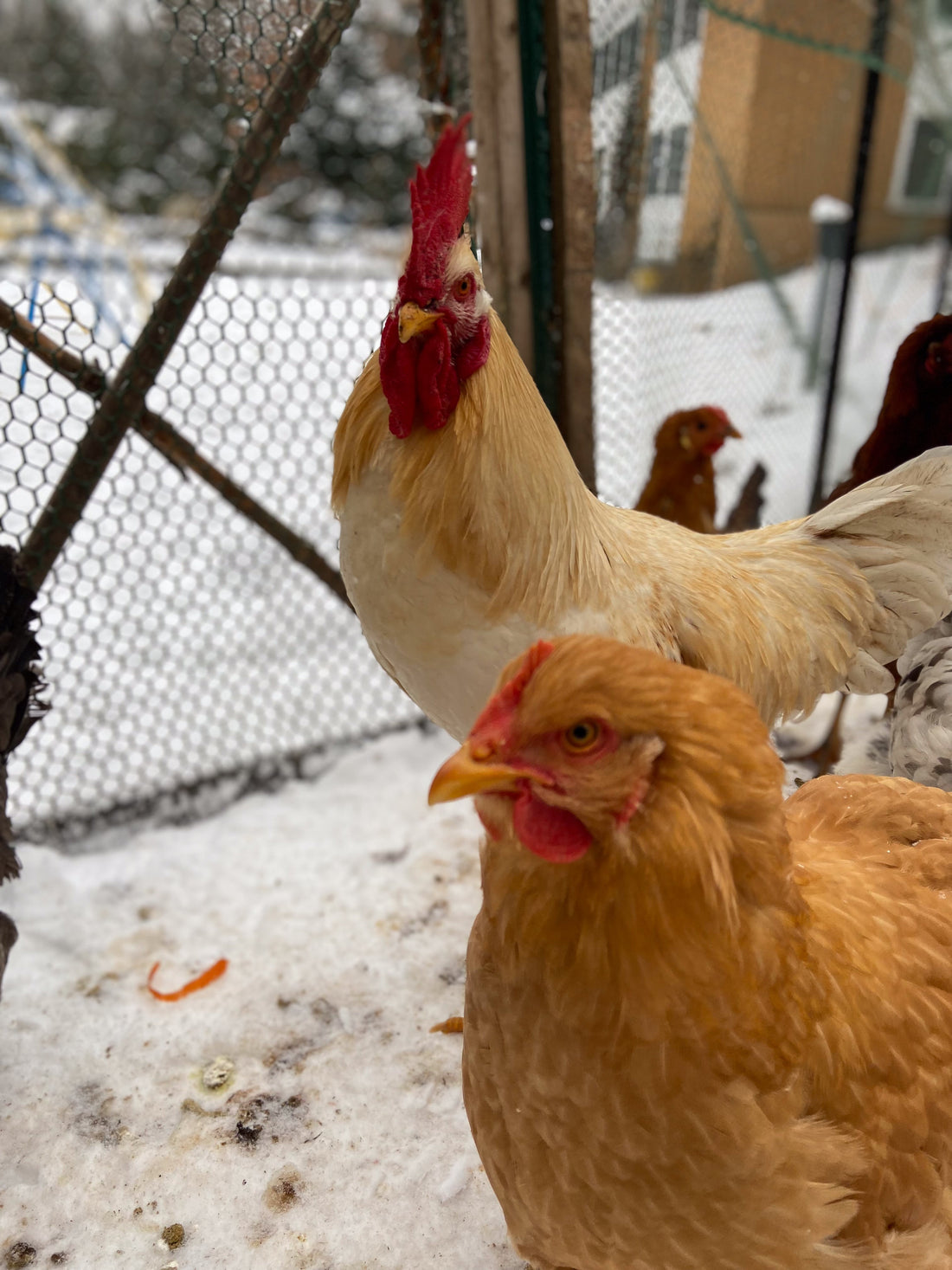
Winter Care for Your Small Farm: Chickens, Honey Bees, and Working Dogs
RoniLynn ShroutShare
Winter Care for Your Small Farm: Chickens, Honey Bees, and Working Dogs
As winter sets in, managing a small farm with chickens, honey bees, and working dogs requires extra attention to ensure the health and well-being of your animals and pollinators. Cold temperatures, snow, and reduced daylight pose unique challenges, but with proper planning, your farm can thrive even during the harshest months.
Caring for Chickens in Winter
Chickens are relatively hardy birds, but they need extra care to stay warm and healthy in winter.

-
Coop Insulation: Ensure the coop is well-insulated but ventilated to prevent moisture buildup, which can lead to frostbite.
-
Bedding: Use deep bedding such as straw or wood shavings to provide extra warmth.
-
Water Supply: Prevent water from freezing by using heated waterers or frequently replacing water.
-
Nutrition: Increase their calorie intake with protein-rich feed and occasional treats like cracked corn to help generate body heat.
-
Lighting: Providing supplemental light can help maintain egg production during the shorter days.
Winter Management for Honey Bees
Bees cluster together in winter to generate heat and maintain hive temperature. Here’s how to support them:
-
Hive Insulation: Wrap hives in breathable insulation to retain heat while allowing airflow.
-
Food Reserves: Ensure hives have adequate honey stores, or supplement with sugar patties or fondant.
-
Wind Protection: Position hives away from strong winter winds or provide a windbreak.
-
Minimal Disturbance: Avoid opening hives in freezing temperatures, as this can disrupt their heat regulation.

Keeping Working Dogs Healthy in Winter
Working dogs play a crucial role on a small farm, and their well-being in winter is essential.
-
Shelter: Provide a well-insulated, dry shelter with warm bedding.
-
Nutrition: Increase their food intake to help maintain body temperature and energy levels.
-
Hydration: Ensure access to unfrozen water at all times.
-
Paw Care: Check paws for ice buildup or cracks, and consider using pet-safe balms or boots.
-
Exercise: Keep them active with tasks suited for winter conditions to maintain fitness and morale.
Conclusion
Winter farming presents challenges, but with thoughtful care, your chickens, honey bees, and working dogs can remain healthy and productive. By providing proper shelter, nutrition, and maintenance, your small farm will continue to thrive through the colder months, setting the stage for a successful spring.









